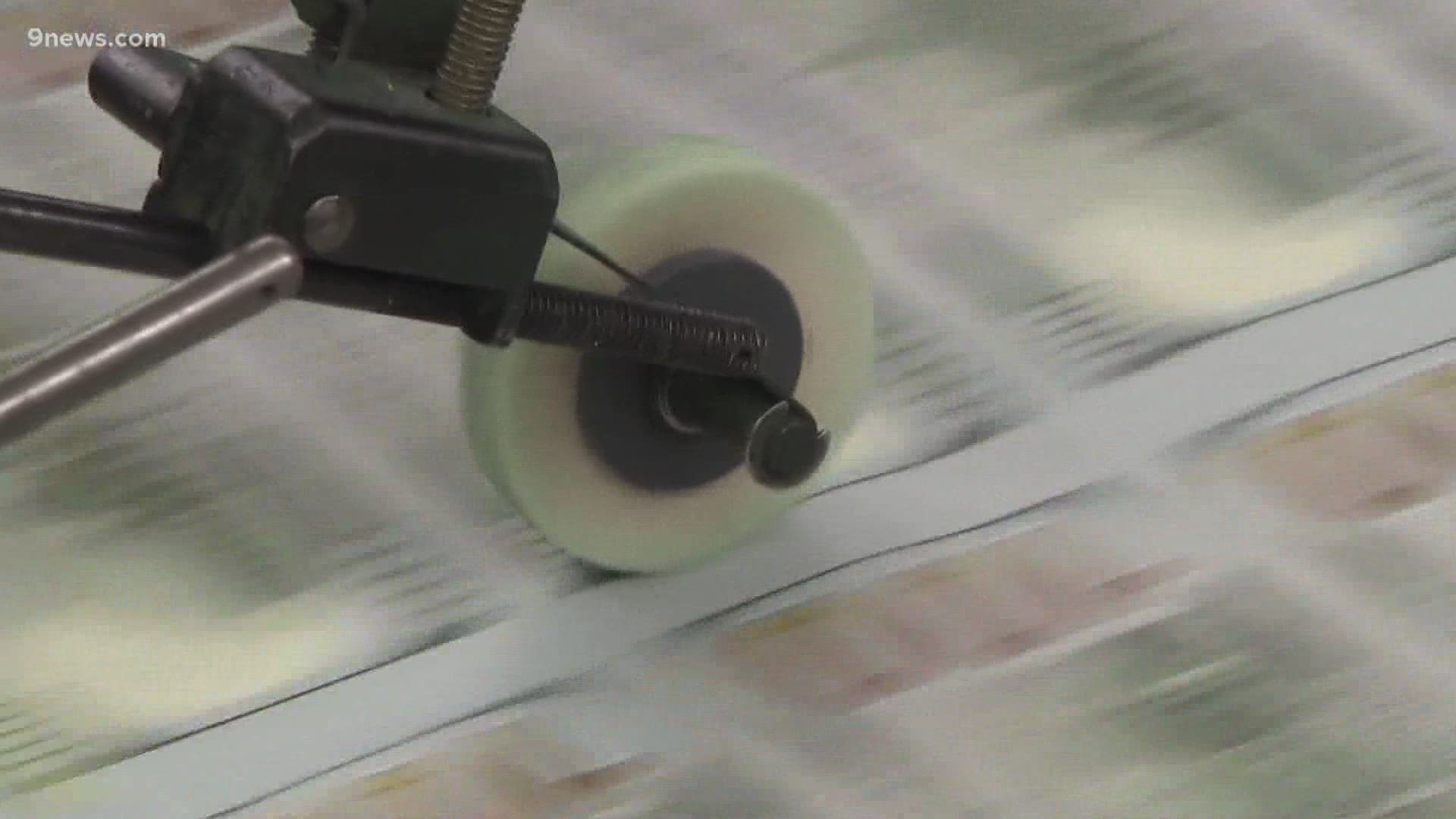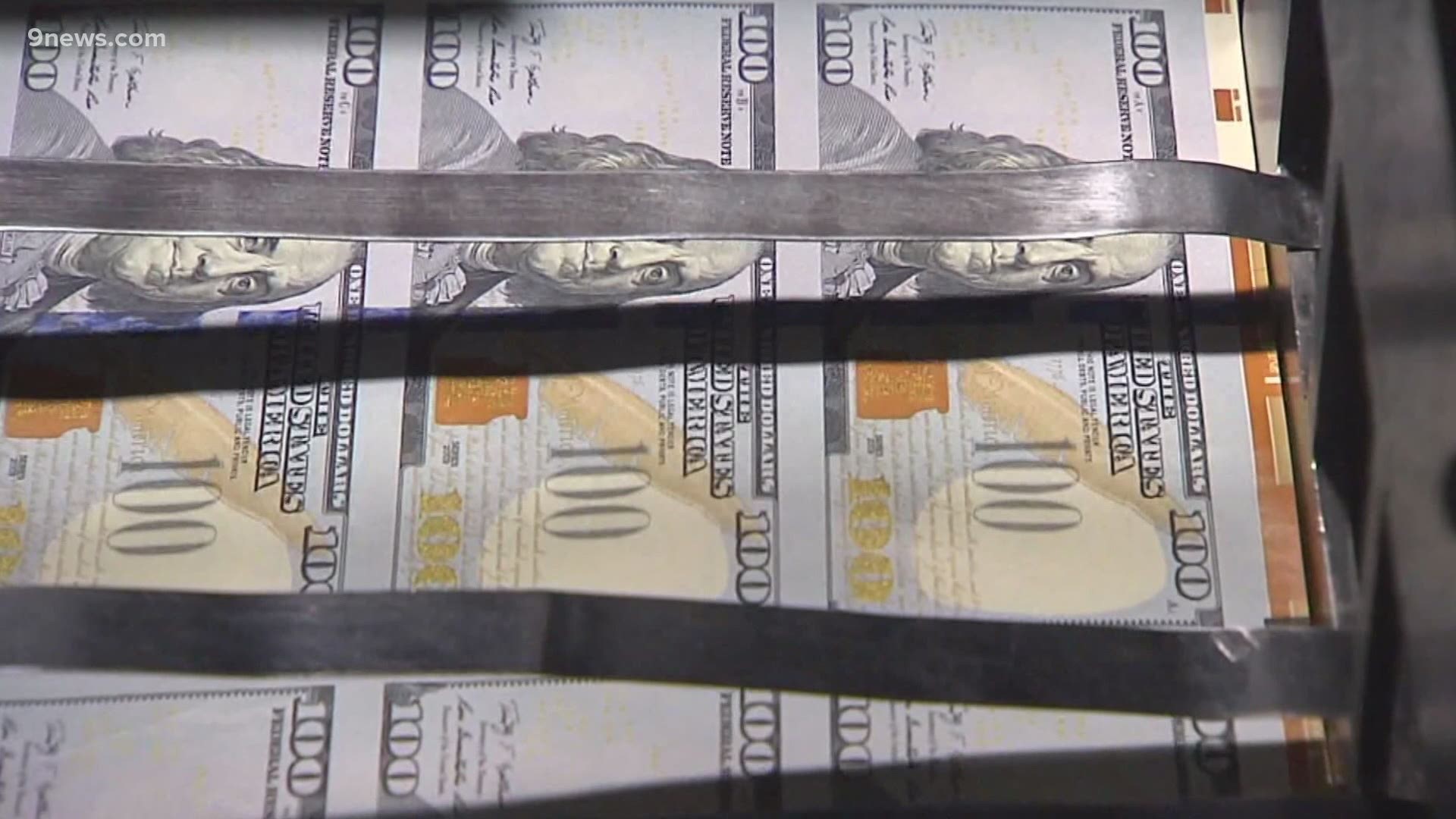DENVER, Colorado — Gov. Jared Polis (D-Colorado) signed an executive order Wednesday that will direct a one-time, $375 stimulus payments to people who are experiencing economic hardship caused by the COVID-19 pandemic, according to a release from the governor's office.
The payments will go to workers who make less than $52,000 per year and have applied for unemployment benefits between March 15 and Oct. 24.
All Coloradans who were eligible to receive between $25 and $500 in weekly unemployment insurance (UI) benefits — including Pandemic Unemployment Assistance (PUA), Pandemic Emergency Unemployment Compensation (PEUC), and other programs — are eligible to receive the one-time payment. About 435,000 Coloradoans will qualify for the new benefits, the governor's office said.
The Colorado Department of Labor and Employment (CDLE) estimates about 65% of all unemployment claimants since March 15 will qualify for these benefits.
“Washington D.C has failed to act to provide additional direct cash support for hardworking Coloradans and to further stimulate the economy, so today Colorado is boldly doing our part to help our own," Polis said in the release. "I am taking swift action in close consultation with legislative leadership and members of the JBC to direct immediate payments to people whose lives and jobs have been hurt due to the COVID-19 pandemic. Colorado can and should act now to help the hardworking people who will help lead us out of this challenging time and that’s what we’re doing today.”
The news was met with some mixed reaction. On Polis' Facebook page, some expressed thanks in the comments section saying they were grateful for relief no matter the amount.
Others argued $375 doesn't go far enough and blamed the state for the shutdowns that led to their financial hardship.
"$375 is a lot of money when you have zero dollars in your account," said State Rep. Kyle Mullica (D-Adams County). "Or when you're negative in your account and you're wondering if you’re able to put food on your table, pay your bills, keep your heat on, keep a roof over your head."
Mullica also works as an ER nurse and has treated COVID-19 patients this year.
"This isn't fun. No one wakes up in the morning hoping to shut down a business. No one wakes up in the morning hoping to make our levels stricter," he said. "You can come back from economic crisis. You don't come back from death."
The state labor department reports that is has distributed $5.77 billion in unemployment benefits since March 29.
Since mid-March when the coronavirus pandemic was declared, 581,334 UI claims have been filed, and in total 751,602 claims have been filed including federal PUA benefits.
The executive order will make available $168 million from the following funds:
- $148.9 million in anticipated reversions to the General Fund from the Medical Services Premium line due to lower than estimated growth in Medicaid enrollment and an extension of federal matching funds
- $13.8 million in existing funds in the Disaster Emergency Fund
- $5.3 million from the Controlled Maintenance Trust Fund.
After these transfers, the State Emergency Reserve will have a remaining designated balance of approximately $150 million.
Bobby Stuckey, restaurant partner with Frasca Hospitality, falls into the "every little bit of relief counts" camp.
"The city and the the state realizes that we're hurting and [this new relief] is the first step, and I commend them for that."
Stuckey runs several restaurants in Colorado, where he and his team are navigating COVID-19 capacity restrictions and impacts on the staff, like furloughs, this year.
The Colorado Restaurant Association (CRA) reports restaurants account for almost 10% of Colorado's labor force. In an October survey conducted by the CRA, 50% of restaurants said they were in danger of closing in the next six months if nothing changed. At the time of the survey, restaurant capacity was 50%.
While local relief efforts are appreciated, Stuckey is working toward a bigger goal.
As one of the founders of the Independent Restaurant Coalition, Stuckey and other restaurant industry leaders are pushing Congress to pass the Restaurants Act. He, too, is frustrated by inaction in D.C.
"The restaurant industry in very, very tough position. We're not an industry, matter of fact, no industry can close for three months and then be operating at 25 or 50%. It just doesn’t work," he said.
Stuckey understands and supports public health efforts to keep people safe from the virus. But his team can't simply work from home. The pending winter season will create extra challenges with outdoor dining and rising COVID cases.
He hopes the Restaurants Act will help keep the industry afloat.
"The Restaurants Act gives you enough cushion to get to June next year, hopefully we'll be in better place by then."
SUGGESTED VIDEOS: COVID-19 Coronavirus


